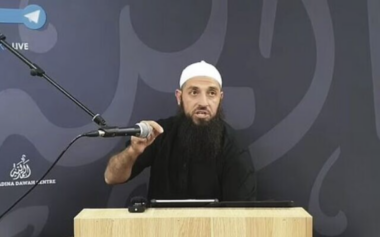Ahead of Russia’s presidential election, 15 March, a Monash University expert is available to discuss what the election could mean for Russia, and globally.
PhD candidate Alasdair McCallum, School of Social Sciences, Politics and International Relations, Faculty of Arts, Monash University
Contact: +61 427 856 007 or [email protected]
Read more of Mr McCallum’s commentary at Monash Lens
The following can be attributed to Mr McCallum:
“Vladimir Putin is leaving nothing to chance in this election. This is a referendum on Mr Putin's leadership, but the outcome has already been decided. Even though Putin still enjoys considerable support among much of the Russian public, the state is determined to control these elections closely to remove any chance of error. Per official results, Putin won the previous presidential election in 2018 with 77.53 per cent of the popular vote with 67.50 per cent voter turnout. This being a wartime election, he will intend to exceed that.
“Russia’s onerous requirements for candidate nomination and registration saw two candidates with anti-war platforms, Yekaterina Duntsova and Boris Nadezhdin, barred from running, although neither was likely to achieve mass support. Only three other candidates - all weak candidates from Russia’s ‘systemic opposition’ - have been cleared to run: Nikolai Kharitonov of the Communist Party of the Russian Federation (CPRF), Leonid Slutsky of the wildly misnamed Liberal Democratic Party (LDPR) a right-wing nationalist party, and Vladislav Davankov of New People, a recently created Kremlin-controlled, nominally liberal party. They are not running to win - their presence on the ballot is there to remind voters of the lack of credible alternatives to Putin and Putin’s indispensability to the system.
“None of this means that these elections are meaningless. They are a huge exercise in democratic ritual with nearly 115 million eligible voters, and according to Russian state media involve more than one million organisers. They are an opportunity for the Putin regime to gather information about the electorate, test the regime’s capacity to mobilise voters and, by delivering a predetermined victory for Putin, demonstrate the supposed near-universal support for Putin. The results will be neither free nor fair, but the regime will try to maintain the appearance of a clean election and not resort to blatant electoral fraud.
"While Putin still enjoys a considerable degree of support among the Russian electorate, the lengths his regime has gone to to manage these Presidential elections and exclude all serious competition should be read as a sign of its decadence and vulnerability, not strength.”
For any other topics on which you may be seeking expert comment, please contact the Monash University Media team on +61 3 9903 4840 or [email protected]

